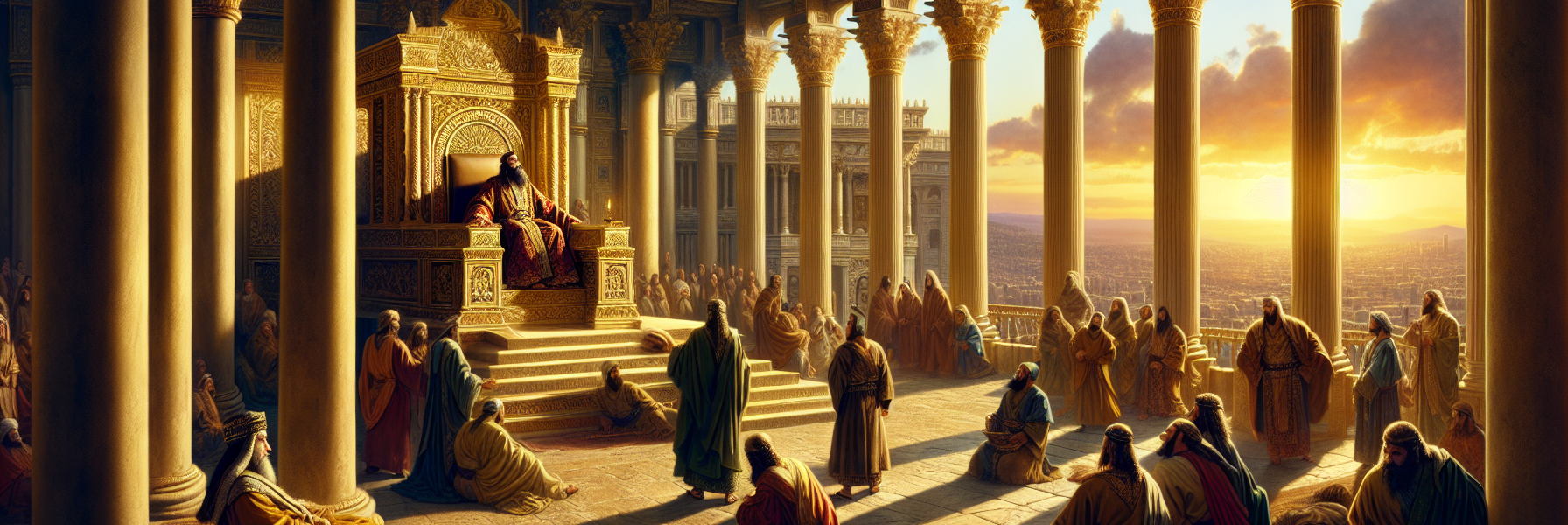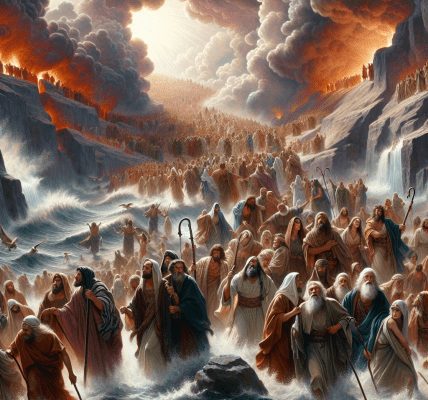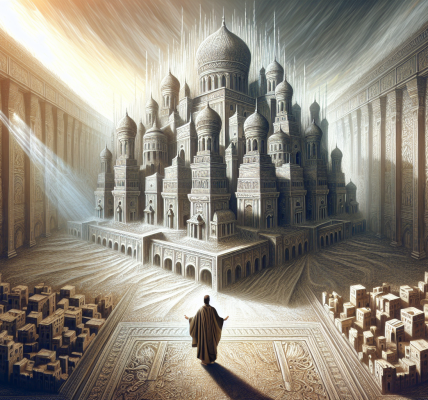**The Fall of the House of Jehoiakim: A Warning Unheeded**
The sun hung low over Jerusalem, casting long shadows across the grand palace of King Jehoiakim. The air was thick with the scent of cedar and the distant murmur of merchants closing their stalls. Inside the palace, the king lounged on a throne inlaid with ivory, his robes heavy with gold embroidery. His courtiers whispered flatteries, but beyond the palace walls, the people groaned under heavy taxes and forced labor.
It was in this moment that the word of the Lord came to Jeremiah. The prophet stood in the great courtyard, his rough tunic a stark contrast to the finery around him. His voice, though not loud, carried the weight of divine authority as he spoke:
*”Thus says the Lord: Go down to the palace of the king of Judah and speak this word there. Say, ‘Hear the word of the Lord, O king of Judah, you who sit on the throne of David—you, your officials, and your people who enter these gates.’”*
The guards stiffened, but none dared silence a prophet. Jeremiah’s eyes burned with holy fire as he continued:
*”Thus says the Lord: Do what is just and right. Deliver the oppressed from the hand of the oppressor. Do no wrong or violence to the resident alien, the fatherless, or the widow. Shed no innocent blood in this place.”*
The king’s face darkened. He had built his palace with forced labor, expanding its halls with cedar from Lebanon while ignoring the cries of the poor. His father, Josiah, had been a righteous king, but Jehoiakim cared only for his own glory.
Jeremiah’s voice grew sharper. *”For if you will not obey these words, I swear by Myself, declares the Lord, that this house shall become a desolation.”*
A murmur spread through the court. The prophet raised his hand toward the grand structure around them. *”Though you are as magnificent as Gilead or the summit of Lebanon, I will surely make you a wilderness, cities uninhabited. I will prepare destroyers against you, each with his weapons, and they shall cut down your choicest cedars and cast them into the fire.”*
The king’s grip tightened on the armrest of his throne. *”Who is this madman to threaten the house of David?”* he muttered to his advisors. But Jeremiah was not finished.
*”People will pass by this palace and ask, ‘Why has the Lord dealt thus with this great city?’ And they will answer, ‘Because they forsook the covenant of the Lord their God and worshiped other gods and served them.’”*
The prophet turned to leave, but his final words lingered like the scent of smoke before a coming fire: *”Weep not for the dead, nor mourn for him, but weep bitterly for him who goes away, for he shall return no more to see his native land.”*
### **The King’s Defiance and Doom**
Jehoiakim sneered as the prophet departed. *”Tear his words from the scroll and burn them!”* he commanded. And so, as the scribe read Jeremiah’s warnings, the king cut them with a knife and cast them into the brazier until all was consumed.
But the word of the Lord could not be burned.
Years later, the Babylonian armies swept through Judah like a storm. The mighty cedars of the palace were hacked down, the gold stripped from the walls. Jehoiakim, who had lived in luxury, died in disgrace—his body dragged beyond the gates and left unburied, *”exposed to the heat by day and the frost by night.”*
And just as the prophet had foretold, the people whispered as they passed the ruins: *”This was the palace of a king who did justice to no one.”*
### **The Lesson of the House of David**
Jeremiah’s words echoed through the generations: A king is not measured by his palace but by his righteousness. The Lord does not delight in grand buildings but in mercy, justice, and humility.
And so, the ruins of Jehoiakim’s palace stood as a warning—to kings and commoners alike—that those who exalt themselves will be brought low, but those who walk in righteousness will be remembered forever.




